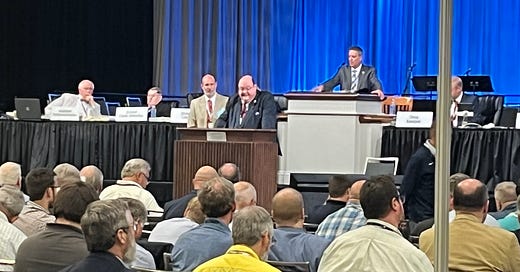Report on the PCA's Jubilee Assembly
The 50th General Assembly of the Presbyterian Church in America was a mighty demonstration of God's grace and faithfulness to His Church.
The Presbyterian Church in America at 50 is stronger, more committed to her Westminster heritage, more beautiful, more healthy, more orthodox, and more united than ever before. The PCA at 50 shows every sign of being a living, growing, vibrant Church. The PCA is worth fighting for because the PCA is worth having!
The PCA General Assembly convened in Memphis, Tenn. Tuesday, June 12. This year’s Assembly was exceptional as it combined the regular business of the Church with numerous times of reflection, prayer, and thanksgiving in light of the 50th Anniversary of the PCA’s Founding in 1973. God was exceedingly kind, faithful, and generous to the PCA at this year’s Assembly.
I. Opening Worship & Election of the Moderator
At last report, 2290 elders (1559 TEs and 691 REs) gathered for the meeting of the General Assembly, which opened with a service of worship. The retiring Moderator, RE John Bise, chose the preacher for the evening, his former pastor TE Randy Thompson of FPC Tuscumbia, Ala…


